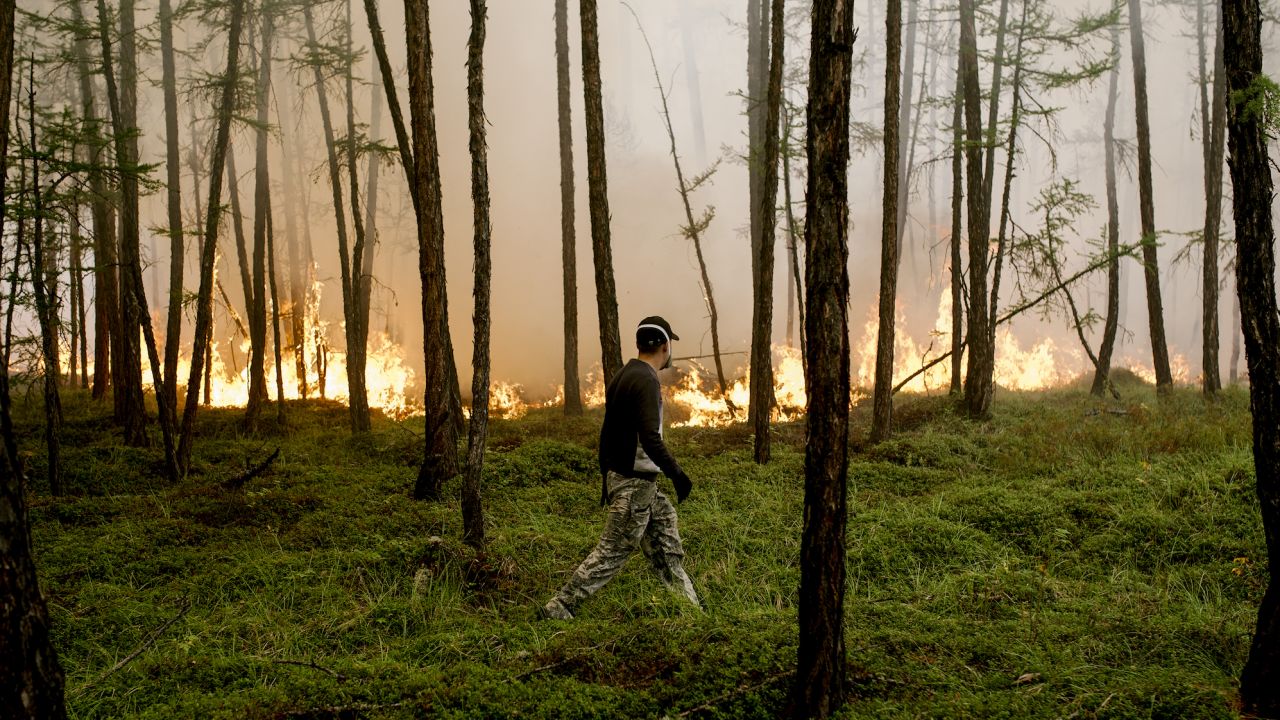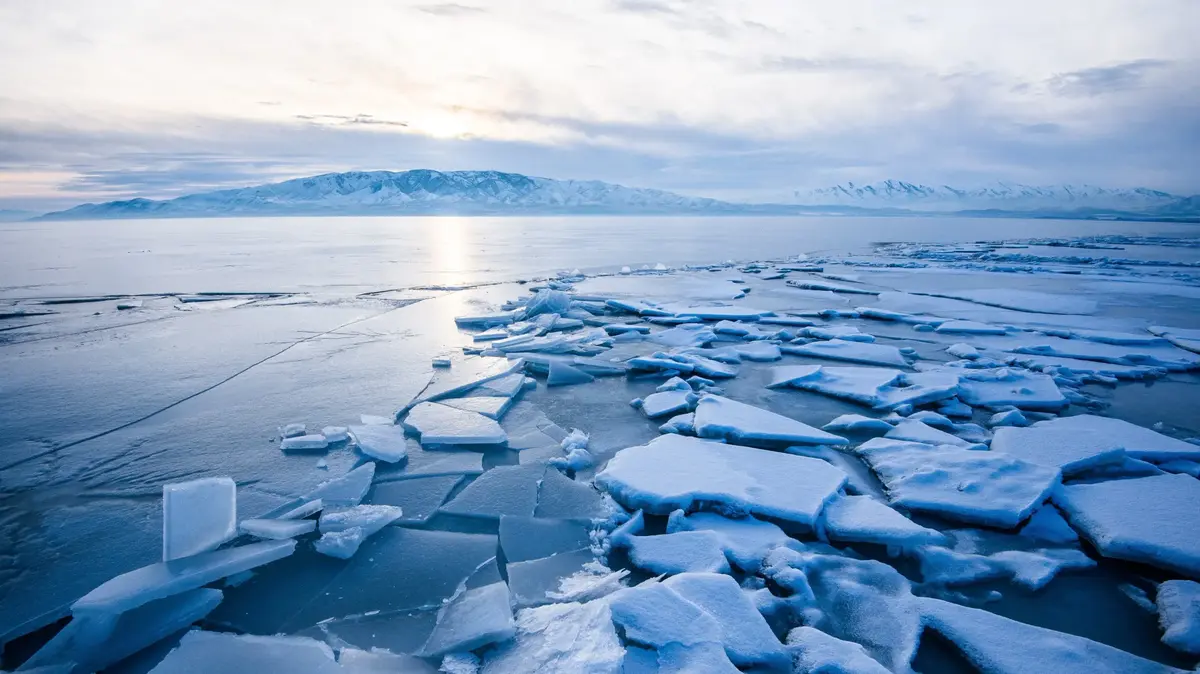Forest fires in Sakha, Russia, in August 2021. Forest loss is a climate feedback loop in a complex web of changes that can accelerate the impacts of the climate crisis.
(CNN) —
Dangerous climate feedback loops increase global warming and risk causing a permanent change in Earth's current weather conditions, according to a new study.
Climate feedback loops are chain reactions that occur when one change produces additional transformations, in a process that keeps repeating itself.
Some of these cycles reduce heating, but others amplify it.
An example of this is what happens in the ice of the Arctic.
Warmer temperatures cause sea ice to melt, revealing the dark ocean water below.
But as dark surfaces absorb more heat than reflective surfaces like ice, the ocean warms and more ice melts.
Extreme cold snaps: why temperatures keep falling to dangerous levels despite global warming
A group of international scientists from institutions including Oregon State University, the University of Exeter, and the Potsdam Climate Impact Research Institute in Germany, pored over the available climate literature to identify 41 climate feedback loops.
Of these, they found that 27 are raising global temperatures, according to the study published this Friday in the scientific journal One Earth, while only seven are helping to slow the pace of the climate crisis.
advertising
William Ripple, a professor of ecology at Oregon State University and lead author of the study, told CNN that disappearing forests, smoldering peat bogs and thawing permafrost are especially worrisome.
“These feedbacks can be large and difficult to quantify precisely,” Ripple explained to CNN.
The researchers were surprised by the large number of amplifying climate feedback loops they found, he added.
melting of glaciers
"To our knowledge, this is the most extensive list of climate feedback loops, and not all of them are fully considered in climate models," Christopher Wolf, a postdoctoral fellow at Oregon State University and another lead author of the study, said in a statement. study.
Climate feedback loops can also indirectly affect each other, according to the study, creating a complex web of interconnected changes that can accelerate the impacts of the climate crisis.
For example, warming pollution released by thawing permafrost—the frozen layer of soil that covers the Arctic and other parts of the far north of the planet—increases global temperatures, which in turn helps create warmer conditions. and dry conditions that cause forest fires to spread faster and burn more intensely.
In turn, forest fires release pollution that warms the planet, further raising temperatures, and so on.
These interconnections “make it difficult to predict the precise impacts of climate change,” Ripple insisted.
There is a risk that some of these feedback loops could trigger climate tipping points.
For example, feedback loops that accelerate the melting of Arctic ice could ultimately cause the Greenland ice sheet to collapse.
“At worst, if the amplification cycles are strong enough, the result is likely to be tragic climate change beyond anything humans can control,” Ripple said in a statement.
OPINION |
It's not just carbon emissions.
Human Faults Are Ruining the Weather, Too
The study also found seven "buffer" feedback loops, which help stabilize the climate system.
These include the ability of the land and oceans to absorb the carbon emissions that warm the planet.
It's important to "try to control the strength of all these feedback loops," Tim Lenton, chair of Climate Change and Earth System Science at the University of Exeter and one of the co-authors, told CNN to better understand how these phenomena work within of the complex climate system.
"We, already at 1.5 [degrees Celsius], are likely to cross several tipping points, triggering feedback loops that would make our chances for a secure climate future even smaller," said Johan Rockström, director of the institute. of Potsdam and co-author of the study, told CNN.
The authors called for "immediate and massive" reductions in planet-warming pollution, as well as more research into climate feedback loops.
“It is too late to fully prevent the effects of climate change, but if we take meaningful action soon while prioritizing basic human needs and social justice, it may still be possible to limit the damage,” Ripple said.
Global warmingPollution












